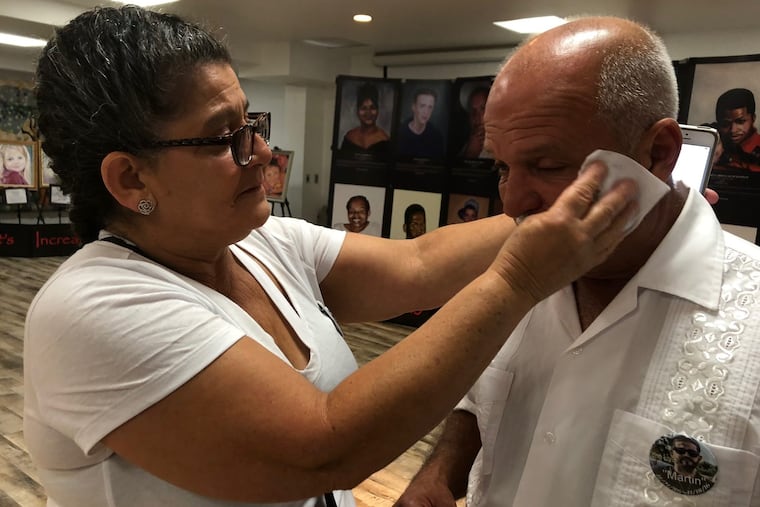With new homicide detectives on the way, good news for families of Philly victims | Helen Ubiñas
Philly's murder rate is higher than it's been in six years. More detectives and less squabbling should help.

I don’t get to share good news with families of murder victims very often, so when Philadelphia Police Commissioner Richard Ross told me this week that the Homicide Unit was adding 11 detectives, I couldn’t wait to share.
Many families understandably had been alarmed about the story last week by my colleagues David Gambacorta and Dylan Purcell and me that reported that in addition to the number of murders being up and fewer cases being solved, there was now a family squabble over overtime.
Because we all know that nothing increases productivity like drama: On one side, salty detectives, union officials, and even prosecutors crying foul over cuts. On the other, prickly Ross and Capt. John Ryan, the head of the Homicide Unit, insisting that other units in the department also were facing budget reductions — about 5 percent across the Police Department — and that the cuts to homicide were not hurting investigations.
Families weren’t buying it. Not a week goes by without a mother or sister reaching out to me in the hope that a little media exposure will shake loose not just some witnesses but also a detective who’s gone quiet. In the meantime, moms turn into detectives and share tips among one another, including which detectives are good and which are ghosts.
Ross added a caveat: With retirements, the net gain would be closer to eight bodies, increasing the number of detectives to about 60. Not exactly a move by someone worried about overtime, he pointed out, as more detectives would likely lead to more overtime. And not exactly an army for the 326-and-counting homicides just this year.
Still, the family members I called were cautiously optimistic. More manpower (even by a handful more detectives) can potentially lead to solving more cases, they said.
“Hopefully, anyway,” said Aleida Garcia. whose son Alejandro Rojas-Garcia was murdered in 2015, prompting her to found the National Homicide Justice Alliance. (In May, her son's killer was sentenced to life in prison.)
While the battles over OT continue, the families hold on to any hope they can get.
It won’t be a panacea, Ross rightly cautioned. Especially given all the other limitations to the unit, including the lack of basic technology, like voicemail or email accounts for detectives, or even department-issued cellphones.
Oh, and Ross added one more thing. The additions had “nothing" to do with our story. They were already in the works, a fluid response to retirements and an increase in murders.
OK.
Honestly, I don’t care. No one’s looking for any credit here. What I do care about are victims' families that often find themselves stuck in the middle, whether people are fighting over overtime or criminal justice reform.
In case you missed numbers that should have elicited a primal scream from City Hall, leading a call to action, murders in Philadelphia are at the highest rate in six years. And only one in three murders are being solved. Why that is may have something to do with another startling stat: The clearance rate on the 900-plus nonfatal shootings this year is about 18 percent to 20 percent. It’s not just people with a license to shoot walking among us, increasingly it’s people with a license to kill.
But I was determined to deliver some good news to the families, so I didn’t share that tidbit right away.
Yullio Robbins, another mother who has been waiting nearly three years for her son’s murder to be solved, was happy to hear about the additions to the squad.
But the only news that matters to her is that the person responsible for killing her son in 2016 is off the streets.
“That’s the good news I’m waiting for,” she said. That’s the good news that hundreds of families in this city are waiting for.